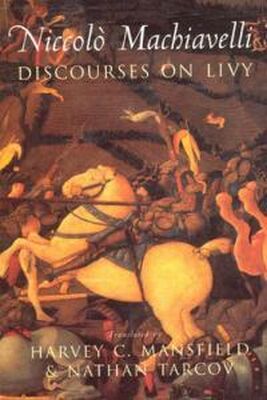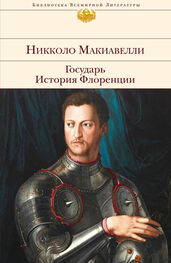"A prince's acts his people imitate;
For on their lord the eyes of all men wait." [17] E quel che fa il signer, fanno poi molti; Chè nel signer son tutti gli occhi volti. ( La Rappresentazione di San Giovanni e Paolo. )
Chapter XXX
That a Citizen Who Seeks by His Personal Influence to Render Signal Service to His Country, Must First Stand Clear of Envy. How a City Should Prepare for Its Defence on the Approach of an Enemy.
When the Roman senate learned that all Etruria was assembled in arms to march against Rome, and that the Latins and Hernicians, who before had been the friends of the Romans, had ranged themselves with the Volscians the ancient enemies of the Roman name, they foresaw that a perilous contest awaited them. But because Camillus was at that time tribune with consular authority they thought all might be managed without the appointment of a dictator, provided the other tribunes, his colleagues would agree to his assuming the sole direction of affairs. This they willingly did; " nor ," says Titus Livius, " did they account anything as taken from their own dignity which was added to his. "
On receiving their promise of obedience, Camillus gave orders that three armies should be enrolled. Of the first, which was to be directed against the Etruscans, he himself assumed command. The command of the second, which he meant to remain near Rome and meet any movement of the Latins and Hernicians, he gave to Quintius Servilius. The third army, which he designed for the protection of the city, and the defence of the gates and Curia, he entrusted to Lucius Quintius. And he further directed, that Horatius, one of his colleagues, should furnish supplies of arms, and corn, and of all else needful in time of war. Finally he put forward his colleague Cornelius to preside in the senate and public council, that from day to day he might advise what should be done. For in those times these tribunes were ready either to command or obey as the welfare of their country might require.
We may gather from this passage how a brave and prudent man should act, how much good he may effect, and how serviceable he may be to his country, when by the force of his character and worth he succeeds in extinguishing envy. For this often disables men from acting to the best advantage, not permitting them to obtain that authority which it is essential they should have in matters of importance. Now, envy may be extinguished in one or other of two ways: first, by the approach of some flagrant danger, whereby seeing themselves like to be overwhelmed, all forego their own private ambition and lend a willing obedience to him who counts on his valour to rescue them. As in the case of Camillas, who from having given many proofs of surpassing ability, and from having been three times dictator and always exercised the office for the public good and not for his private advantage, had brought men to fear nothing from his advancement; while his fame and reputation made it no shame for them to recognize him as their superior. Wisely, therefore, does Titus Livius use concerning him the words which I have cited.
The other way in which envy may be extinguished, is by the death, whether by violence or in the ordinary course of nature, of those who have been your rivals in the pursuit of fame or power, and who seeing you better esteemed than themselves, could never acquiesce in your superiority or put up with it in patience. For when these men have been brought up in a corrupt city, where their training is little likely to improve them, nothing that can happen will induce them to withdraw their pretensions; nay, to have their own way and satisfy their perverse humour, they will be content to look on while their country is ruined. For envy such as this there is no cure save by the death of those of whom it has taken possession. And when fortune so befriends a great man that his rivals are removed from his path by a natural death, his glory is established without scandal or offence, since he is then able to display his great qualities unhindered. But when fortune is not thus propitious to him, he must contrive other means to rid himself of rivals, and must do so successfully before he can accomplish anything. Any one who reads with intelligence the lessons of Holy Writ, will remember how Moses, to give effect to his laws and ordinances, was constrained to put to death an endless number of those who out of mere envy withstood his designs. The necessity of this course was well understood by the Friar Girolamo Savonarola, and by the Gonfalonier Piero Soderini. But the former could not comply with it, because, as a friar, he himself lacked the needful authority; while those of his followers who might have exercised that authority, did not rightly comprehend his teaching. This, however, was no fault of his; for his sermons are full of invectives and attacks against " the wise of this world ," that being the name he gave to envious rivals and to all who opposed his reforms. As for Piero Soderini, he was possessed by the belief that in time and with favourable fortune he could allay envy by gentleness–and by benefits conferred on particular men; for as he was still in the prime of life, and in the fresh enjoyment of that good–will which his character and opinions had gained for him, he thought to get the better of all who out of jealousy opposed him, without giving occasion for tumult, violence, or disorder; not knowing how time stays not, worth suffices not, fortune shifts, and malice will not be won over by any benefit Wherefore, because they could not or knew not how to vanquish this envy, the two whom I have named came to their downfall.
Another point to be noted in the passage we are considering, is the careful provision made by Camillus for the safety of Rome both within and without the city. And, truly, not without reason do wise historians, like our author, set forth certain events with much minuteness and detail, to the end that those who come after may learn how to protect themselves in like dangers. Further, we have to note that there is no more hazardous or less useful defence than one conducted without method or system. This is shown in Camillus causing a third army to be enrolled that it might be left in Rome for the protection of the city. Many persons, doubtless, both then and now, would esteem this precaution superfluous, thinking that as the Romans were a warlike people and constantly under arms, there could be no occasion for a special levy, and that it was time enough to arm when the need came. But Camillus, and any other equally prudent captain would be of the same mind, judged otherwise, not permitting the multitude to take up arms unless they were to be bound by the rules and discipline of military service. Let him, therefore, who is called on to defend a city, taking example by Camillus, before all things avoid placing arms in the hands of an undisciplined multitude, but first of all select and enroll those whom he proposes to arm, so that they may be wholly governed by him as to where they shall assemble and whither they shall march; and then let him direct those who are not enrolled, to abide every man in his own house for its defence. Whosoever observes this method in a city which is attacked, will be able to defend it with ease; but whosoever disregards it, and follows not the example of Camillus, shall never succeed.
Chapter XXXI
That Strong Republics and Valiant Men Preserve Through Every Change the Same Spirit and Bearing.
Among other high sayings which our historian ascribes to Camillus, as showing of what stuff a truly great man should be made, he puts in his mouth the words, " My courage came not with my dictatorship nor went with my exile; " for by these words we are taught that a great man is constantly the same through all vicissitudes of Fortune; so that although she change, now exalting, now depressing, he remains unchanged, and retains always a mind so unmoved, and in such complete accordance with his nature as declares to all that over him Fortune has no dominion.
Читать дальше









